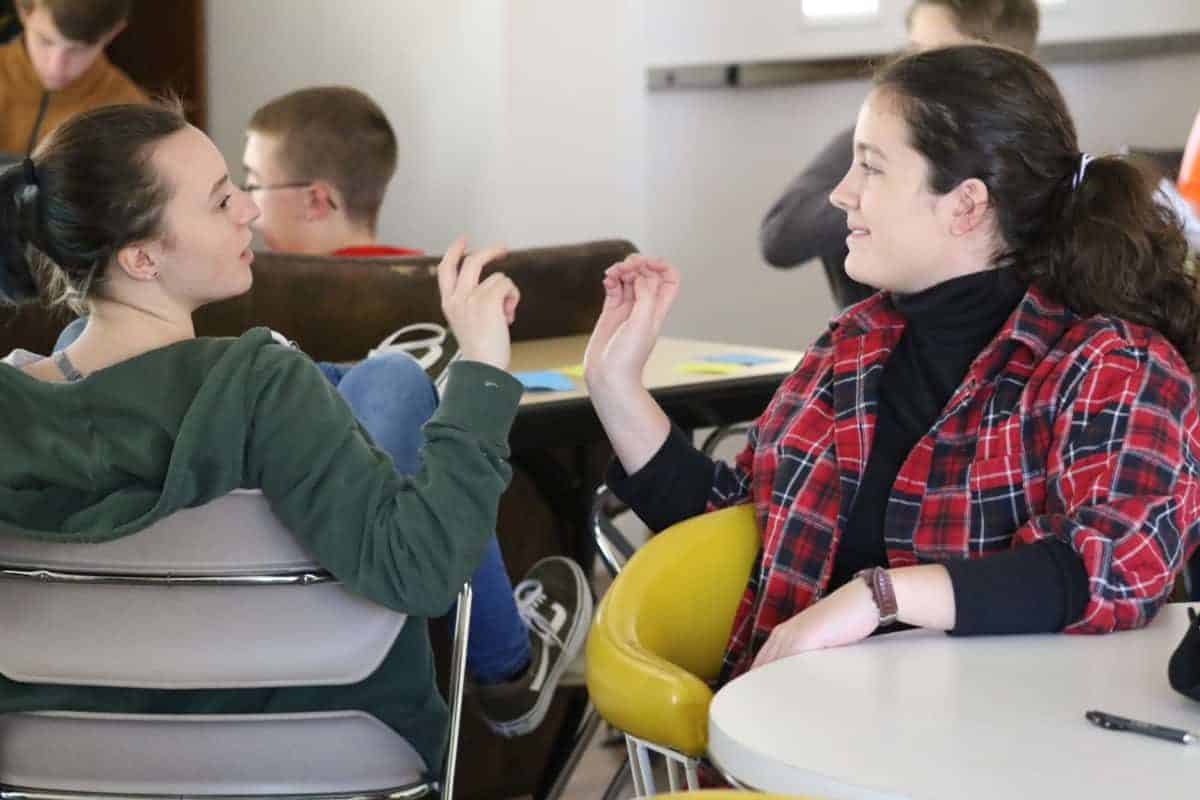
This is the fifth piece in a series on competency-based education. Read the rest of the series here.
As competency-based education (CBE) becomes an important priority in schools and districts across North Carolina, RTI International is pleased to highlight three schools that are implementing student-focused, innovative approaches that personalize education with a goal of meeting the needs of every child. The Innovation Academy, Carroll Middle School, and Tri-County Early College are leaders in the journey toward personalized learning and schools to watch as they further develop different aspects of CBE.
The Innovation Academy
District: Johnston County Public Schools
Grades served: 6-8
Started CBE practices: 2017
Interviewed: Kelley Johnson, Principal
The Innovation Academy was opened in 2017 to model exemplary education practices for Johnston County Public Schools. The goal was to create a robust and productive educational opportunity for every student, to create opportunities for personalization and self-paced instruction, and to empower students — referred to as creators — to make positive change in the world.
The first step of the Innovation Academy leadership team was to focus on standards to guide instruction, because in their view, everything starts with the standards.
Principal Kelley Johnson says, “When we thoroughly understand our standards, we can make learning relevant for each student. Some students will struggle getting to the depth of the standard and others need to go deeper than proficient understanding.”
This sentiment truly reflects personalization — teachers determine where a student is on their learning path and tailor learning for each student.
The Innovation Academy has benefited from the support of parents, community leaders, and district personnel. Support from all these sources has been essential in successful implementation of personalized learning. The school’s vision describes the Innovation Academy community as “pioneering teacher-leaders, students, and families who approach learning in innovative and personalized ways.” Success has been measured by improvement in learning, attendance, and behavior for students that historically have not thrived in school.
Carroll Magnet Middle School
District: Wake County Public Schools
Grades served: 6-8
Started CBE practices: 2018
Interviewed: James Aldridge, Assistant Principal
Carroll Middle School transitioned to competency-based education because traditional approaches were not proving effective for their students. They have found that CBE emphasizes relevance and rigor — both cornerstones of quality core instruction — and prepares students to apply knowledge and skills in a variety of contexts outside of the traditional classroom environment.
Assessments were created to inform instruction, lessons were designed to address needs of individual learners, and students can now articulate what is expected of them and both the “what” and “why” of their lessons. Assistant Principal James Aldridge expressed that even though some of these actions sound simple and logical, it’s interesting how simple ideas can get lost in traditional approaches. CBE shifted instructional practices to be more student-centered and personalized, focusing on what students should be able to do with their learning and how to get them there.
Carroll Middle benefited from district support, including from information technology staff and the student information system to help modify grade reporting, and from the data, research, and accountability team to help monitor success of the initiative. Parents were involved from the beginning of the transition and their support has been essential to Carroll Middle’s success.
Staff at Carroll Middle believe that standardized test scores are still relevant, and that if students are demonstrating mastery, then that ability will be reflected in standardized tests.
Tri-County Early College
District: Cherokee County Schools
Grades served: 9-12
Started CBE practices: 2015
Interviewed: Ben Pendarvis, teacher
Tri-County Early College underwent a school redesign in 2015-2016. A mastery-based grading culture had been established in individual classrooms, but implementation was inconsistent. They realized that aligning assessments more closely to standards provided more information to students and would emphasize learning rather than grades. So, Tri-County staff agreed that CBE would more holistically and effectively serve students and provide them with the skills and knowledge they need to be successful in school and in life.
The transformation began by developing competency documents for each course, finding interdisciplinary connections, and discussing how to create good competencies. It was challenging to adapt CBE to existing instructional strategies and to identify the best practices that would allow assessment of students’ knowledge in real time while offering feedback for continuous growth. But as students were able to show mastery when they were ready, the benefits of CBE became apparent.
Ben Pendarvis, a teacher at Tri-County, shared that he “noticed a distinct and powerful change in [my] students’ learning.” Students took ownership of their learning and were motivated to explain, in their own words, what they had learned.
Tri-County uses a variety of assessment methods to allow students to demonstrate their understanding based on their learning targets. Students can show mastery at any time — in the classroom, in project teams, or in meetings with their teacher. Every semester, Tri-County asks students to present artifacts of their educational journey in a student-led conference with their parents. Students must show they’ve used the survival skills to navigate and/or improve their learning, allowing students to share a formal portfolio of evidence. When students can present their learning goals, challenges, and successes, they also demonstrate that they are well-prepared for the future of work and higher education.
RTI International looks forward to seeing more schools implement CBE and are hopeful that these three models of innovation in North Carolina will provide inspiration for others to move in this direction.
